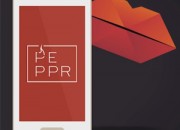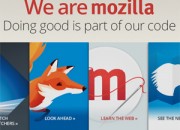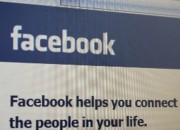Austrian developer Pia Poppenreiter was out on the town in Berlin on a cool autumn night when she saw a sex worker on a street corner and had the sort of “a-ha!” moment any founder will talk your ear off about. “It’s crazy that there’s an app for everything, but not for that,” she thought, referring to street-walking. “Why do they have to stand there in the winter all day?” The answer is Peppr, the Tinder for sex work.
Technology
Pornography is a form of entertainment created for the purpose of arousal, but in many cases, in can serve also as a way of looking at our evolving social, economic, and gender attitudes. In a sense, pornography is an artifact as tangible as a culture’s earthenware, and never has this been more clear to me than in a recent clip released by Girl Bullies, featuring the abuse of subjugation of a male performer portraying a Google employee.
Today, the social mapping company Waze announced it had acquired the dating and hook-up platform SingleSpotter, enabling them to offer their users a product called WazeDates, which gives drivers access to one another’s relationship status, so they can determine whether to send a private message or continue with road rage as usual. This is, of course, an April Fool’s joke, but to single commuters who spend a good chunk of their lives in a car, it’s no laughing matter.
“When we’re too scared to defend sex work, because it’s not our battle, because there’s a legal gray area we’re scared to touch,” writes sex educator Sabrina Morgan, “we’re saying it’s okay to let the sex workers — our front-line sex educators — take the bullets as long as we get to play the game. And we get to play the game only as long as we play it safe. Playing it safe means being afraid to show what it is that we’re teaching.”
Calling something the “fill-in-the-blank” of porn has become so commonplace that it’s difficult to read press releases without injuring the optic nerve from eye-rolling. That said, recent changes in the distribution of adult content stand to make things much better for the user — and the studios — and for that, sometimes you do need to reference the platforms and services outside of the adult industry that revolutionized the way we do things.
I wasn’t cybering long before it occurred to me that one day, we’d be able to connect sex toys to our computers and actually feel one another. I’ve held on to this idea, looking over every technological and pleasure offering for some twenty years, watching the pieces fall into place, getting closer and closer. We’re so close now, I can almost taste it.
Facebook’s algorithms are working a little too well. Just the other morning, it suggested that I poke three men with whom I had covert relationships over the course of the past five years — some not even connected to me on Facebook. While considering all the things that could possibly go wrong with something like this, my eye caught the People You May Know section. I can just imagine Facebook urging that I add my husband’s mistress one day. “But he knows her!” the algorithm will insist. “They talk all the time!”
Google has developed a word list to keep devices running the new Android KitKat operating system from auto-completing or auto-correcting “inappropriate” words. Some of them are so predictable (sex), you’ll roll your eyes. But some others are curious. Why are they banning “geek”? Or “preggers”? Why “uterus” but not “marijuana”?
Apple came under fire last week when a Massachusetts teen discovered that their dictionary app gave the definition “foolish, stupid” for the word “gay.” The 15-year-old Becca Gorman, who had looked up the word while doing research for a paper on gay rights, was surprised that this definition was listed as “informal,” but that the dictionary seemed to provide no indication that the usage of the word in this context was derogatory. An Apple representative called her right away to let her know they were looking into it. What happened there?
















